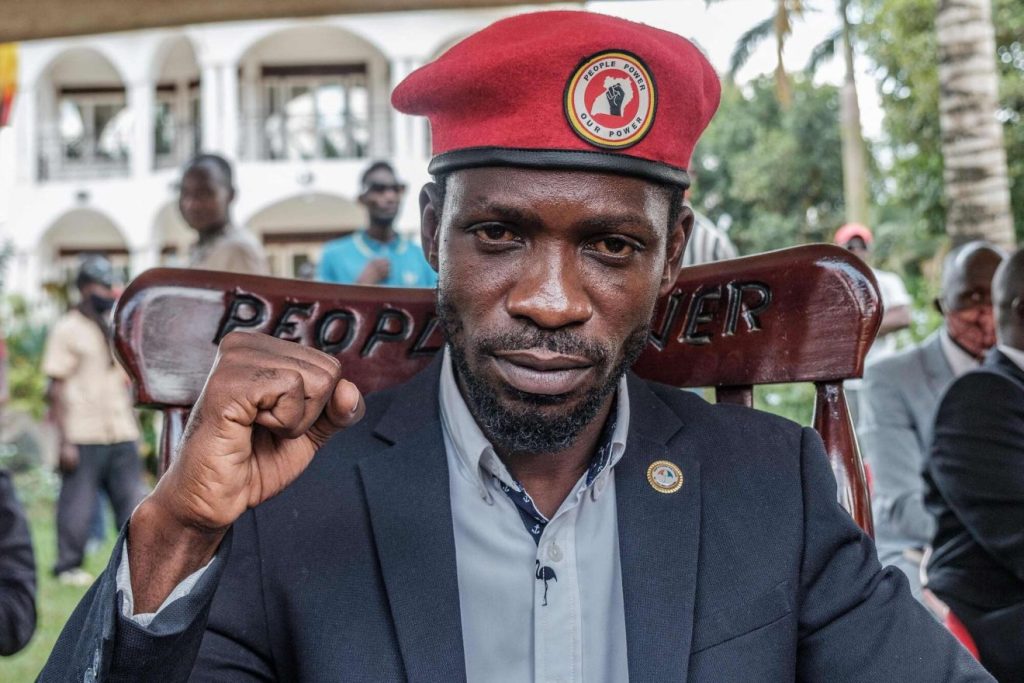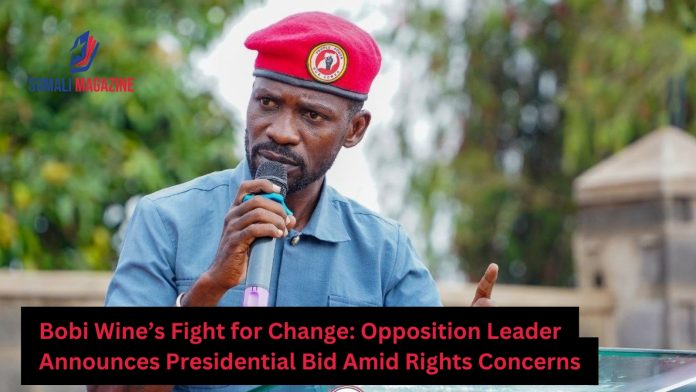Facebook Twitter (X) Instagram Somali Magazine - People's Magazine
Ugandan opposition leader and pop star Bobi Wine has officially declared his candidacy for the country’s upcoming presidential election, setting the stage for a high-stakes political battle against long-serving President Yoweri Museveni. Wine, whose real name is Robert Kyagulanyi, confirmed his intention to run during an interview on May 10, 2025, emphasizing that his campaign will focus on exposing government repression and mobilizing Ugandans for change.
Wine’s announcement comes amid escalating concerns over human rights violations in Uganda, with opposition figures facing arbitrary arrests, torture, and intimidation. He accused Western governments of turning a blind eye to these abuses, arguing that their silence enables Museveni’s administration to continue suppressing dissent. “Some leaders in the West are complicit in our suffering. They are here to crack their business deals and they don’t care about human rights,” Wine stated, urging international actors to take a stronger stance against political repression in Uganda.
The opposition leader previously ran against Museveni in the 2021 election, finishing second in a contest marred by allegations of fraud, voter intimidation, and military interference. Wine rejected the results, citing widespread irregularities, including ballot stuffing and falsification of vote counts. Government officials denied the accusations, but international observers raised concerns about the fairness of the electoral process.
Wine’s renewed bid for the presidency signals his determination to challenge Museveni’s decades-long rule, which began in 1986. At 80 years old, Museveni is widely expected to seek re-election, continuing his grip on power despite growing dissatisfaction among Uganda’s youth. Wine, 43, has positioned himself as a voice for the younger generation, advocating for democratic reforms, economic justice, and an end to state-sponsored violence.

His campaign faces significant obstacles, including the government’s crackdown on opposition activities. Wine’s party, the National Unity Platform (NUP), has reported multiple cases of abductions and illegal detentions of its members. One of the most alarming incidents involved Eddie Mutwe, Wine’s personal bodyguard, who was allegedly tortured while in captivity. Museveni’s son and military chief, Muhoozi Kainerugaba, claimed responsibility for Mutwe’s detention, boasting on social media that he had kept him in his basement and used him as a “punching bag.” Mutwe was later charged with robbery and remanded in custody, further fueling accusations of politically motivated persecution.
Wine has vowed to prioritize human rights and anti-corruption measures if elected, promising to restore political freedoms and hold government officials accountable. His campaign is expected to face fierce resistance from state security forces, who have previously disrupted opposition rallies and detained activists. Despite these challenges, Wine remains optimistic, calling on Ugandans to rise up and demand change. “This election is not just about winning votes—it’s about exposing the regime and galvanizing the people to free themselves,” he declared.
As Uganda prepares for its next presidential election, the international community will be watching closely to see whether Wine’s candidacy can shift the political landscape. His criticism of Western governments adds another layer to the debate, raising questions about global responses to authoritarianism and human rights abuses. Whether Wine can overcome the barriers imposed by Museveni’s administration remains uncertain, but his campaign has already reignited discussions about democracy and governance in Uganda.

